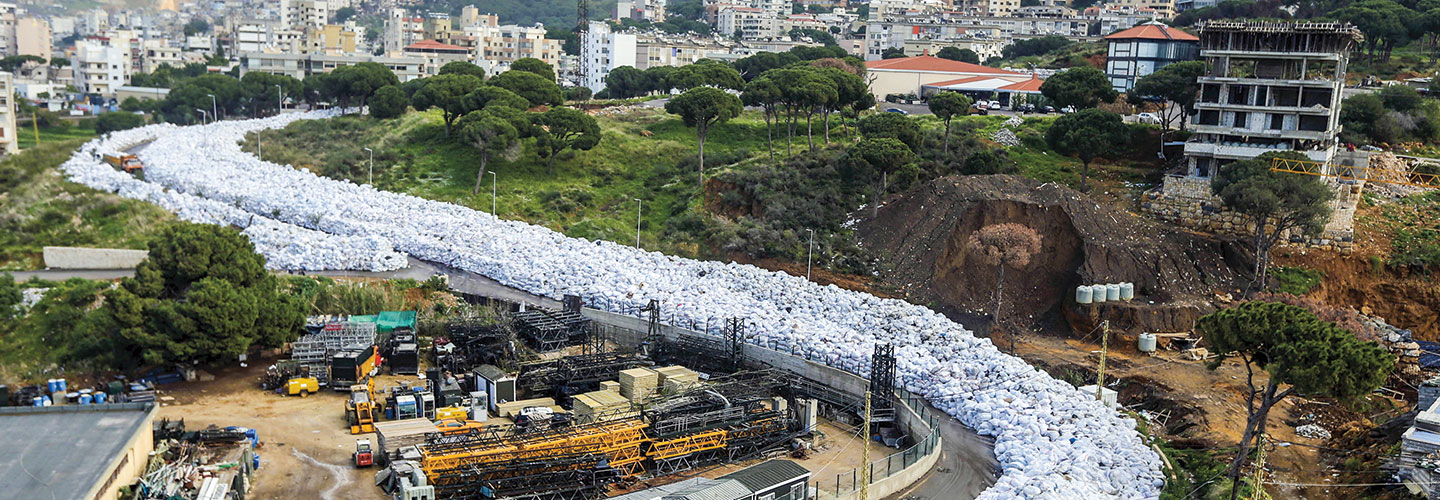Last year, the city of Beirut, Lebanon, shut down its only landfill, which was filled to capacity. With nowhere to put their trash, citizens began leaving it on sidewalks. The junk eventually spilled onto roadways, forming what look like rivers of rubbish.
The government closed the city’s landfill after people complained about its putrid odor. Now, about 2 billion kilograms (4.4 billion pounds) of garbage stink up the streets and block roads and sidewalks instead. And it’s only getting worse—locals add about 2.7 million kg (6 million lbs) of rubbish each day.
“There’s so much trash that it resembles mountains,” says Sahar Atrache, who lives in Lebanon and works as an analyst with an organization called the International Crisis Group.

